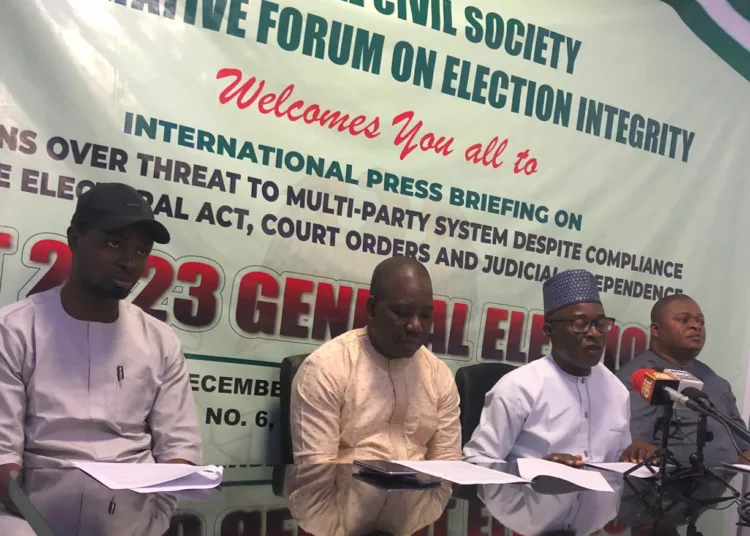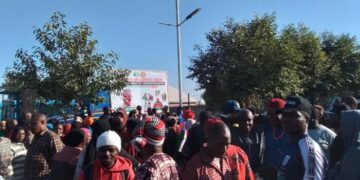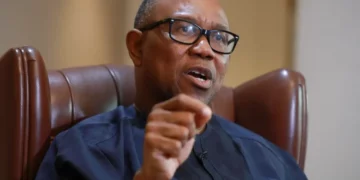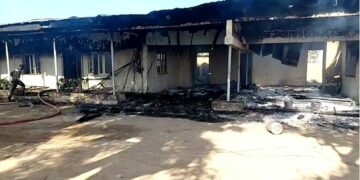The National Civil Society Consultative Forum on Election Integrity has called for a judicial review of verdict on the Plateau State governorship tussle, saying the judgement posed danger to democracy.
It urged political actors to refrain from actions that may undermine the integrity of the judiciary or compromise the independence of judges.
At a briefing in Abuja on Tuesday, the CSOs raised concerns over what they called a threat to multi-party system by the judgement of the appellate court on the Plateau State governorship election.
Recall that the Appeal Court had few weeks ago set aside the judgement of the Governorship Election Petitions Tribunal and instead declared the candidate of the All Progressives Congress (APC) winner of the March 18 governorship election, saying the PDP had no candidate as at the time of the elections.
But reacting, the CSOs said: “The judgment of the Appeal Court sitting in Abuja that nullified the election of Plateau State Governor, Barr. Caleb Manasseh Mutfwang if left unattended to, will pose danger to our hard-earned democracy, this type of outcome will also breed hatred and voter apathy in subsequent elections. The Appeal Court panel based its decision on the premise that the People’s Democratic Party (PDP) in Plateau State had no valid structure and had violated a state high court order that directed the party to conduct fresh congresses in the state.
“However, this claim is contradicted by the fact that the political party had complied with the court order and held a legitimate State Congress on the 25th of September 2021, where delegates from all the 17 local government areas of the state participated and elected their representatives.
“The Appeal Court judgment that sacked all the elected members in Plateau state, including the Governor, is seen as unjust, unfair, and baseless and we join our voices with legal luminaries, such as Femi Falana SAN, Daniel Bwala, Kalu Agu, and several Nigerian citizens, who have rejected and condemned the verdict and appealed to the Supreme Court to correct the anomaly.”
Convener of the Forum, Salahudeen Hashim, called for the amendment of Electoral Laws, stating that the Electoral Act of 2022 introduced commendable changes but left substantial policy gaps in campaign financing transparency, court powers for internal party democracy, and exclusive jurisdiction of the Federal High Court over pre-election matters.
“Legislative amendments are necessary to address these vulnerabilities, which could be exploited to curtail free speech, association and assembly rights. These amendments should also encompass stricter penalties for electoral offences,” he stated.
Also, the CSOs sought for the independence of electoral institutions, stating that credible elections require independent electoral bodies, free from undue executive influence.
“This applies to courts, security agencies, political parties, observers, and electoral institutions, ensuring adherence to established rules, free from external pressures. The executive should abstain from pressuring election officials, judges, candidates, NGOs, and stakeholders to maintain electoral process fairness,” they added.
While encouraging other CSOs on Independent Monitoring and Reporting by enhancing their role as independent watchdogs, it urged them to monitor various electoral stages, including voter registration, campaigning, voting, vote counting, and legal proceedings.
“By reporting their findings, CSOs promote informed public discussion and ensure accountability among electoral authorities and political parties,” Hashim stated.




